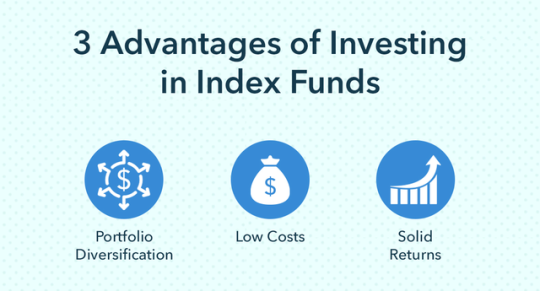#roth ira
Text
{ MASTERPOST } Everything You Need to Know about Retirement and How to Retire
How to start saving for retirement
Dafuq Is a Retirement Plan and Why Do You Need One?
Procrastinating on Opening a Retirement Account? Here’s 3 Ways That’ll Fuck You Over.
Season 4, Episode 5: “401(k)s Aren’t Offered in My Industry. How Do I Save for Retirement if My Employer Won’t Help?”
How To Save for Retirement When You Make Less Than $30,000 a Year
Workplace Benefits and Other Cool Side Effects of Employment
Your School or Workplace Benefits Might Include Cool Free Stuff
Do NOT Make This Disastrous Beginner Mistake With Your Retirement Funds
The Financial Order of Operations: 10 Great Money Choices for Every Stage of Life
Advanced retirement moves
How to Painlessly Run the Gauntlet of a 401k Rollover
The Resignation Checklist: 25 Sneaky Ways To Bleed Your Employer Dry Before Quitting
Ask the Bitches: “Can I Quit With Unvested Funds? Or Am I Walking Away From Too Much Money?”
You Need to Talk to Your Parents About Their Retirement Plan
Season 4, Episode 8: “I’m Queer, and Want To Find an Affordable Place To Retire. How Do I Balance Safety With Cost of Living?”
How Dafuq Do Couples Share Their Money?
Ask the Bitches: “Do Women Need Different Financial Advice Than Men?”
From HYSAs to CDs, Here’s How to Level Up Your Financial Savings
Season 3, Episode 7: “I’m Finished With the Basic Shit. What Are the Advanced Financial Steps That Only Rich People Know?”
Speaking of advanced money moves, make sure you’re not funneling money to The Man through unnecessary account fees. Roll over your old retirement accounts FO’ FREE with our partner Capitalize:
Roll over your retirement fund with Capitalize
Investing for the long term
When Money in the Bank Is a Bad Thing: Understanding Inflation and Depreciation
Investing Deathmatch: Investing in the Stock Market vs. Just… Not
Investing Deathmatch: Traditional IRA vs. Roth IRA
Investing Deathmatch: Stocks vs. Bonds
Wait… Did I Just Lose All My Money Investing in the Stock Market?
Financial Independence, Retire Early (FIRE)
The FIRE Movement, Explained
Your Girl Is Officially Retiring at 35 Years Old
The Real Story of How I Paid off My Mortgage Early in 4 Years
My First 6 Months of Early Retirement Sucked Shit: What They Don’t Tell You about FIRE
Bitchtastic Book Review: Tanja Hester on Early Retirement, Privilege, and Her Book, Work Optional
Earning Her First $100K: An Interview with Tori Dunlap
We’ll periodically update this list with new links as we continue writing about retirement. And by “periodically,” we mean “when we remember to do it.” Maybe remind us, ok? It takes a village.
Contribute to our staff’s retirement!
Holy Justin Baldoni that’s a lot of lengthy, well-researched, thoughtful articles on the subject of retirement. It sure took a lot of time and effort to finely craft all them words over the last five years!
In case I’m not laying it on thick enough: running Bitches Get Riches is a labor of love, but it’s still labor. If our work helped you with your retirement goals, consider contributing to our Patreon to say thanks! You’ll get access to Patreon exclusives, giveaways, and monthly content polls! Join our Patreon or comment below to let us know if you would be interested in a BGR Discord server where you can chat with other Patrons and perhaps even the Bitches themselves! Our other Patrons are neat and we think you should hang out together.
Join the Bitches on Patreon
#retirement#retire#how to retire#retirement account#retirement fund#retirement funds#401k#403b#Roth IRA#Traditional IRA#investing#investors#investing in stocks#Capitalize#401k rollover#personal finance#money tips
136 notes
·
View notes
Video
401k
5 notes
·
View notes
Text
Which is Better, Whole Life Insurance or Roth IRA?
Which is Better, Whole Life Insurance or Roth IRA? - Deciding between whole life insurance and a Roth IRA depends on your financial goals and needs. Whole life insurance offers lifelong coverage with a cash value component, which grows over time and can be borrowed against. It's beneficial for those seeking both insurance and a savings element. Conversely, a Roth IRA focuses on retirement savings with tax-free growth and withdrawals, provided certain conditions are met. It's ideal for those prioritizing retirement savings with tax advantages. Consulting with a financial advisor can help determine which option aligns better with your long-term objectives and provides the most benefits for your specific situation.
0 notes
Text

Did you know that you can use a tax strategy to hire your children as your company employees, allowing you to transfer wealth while reducing taxes.
1. Children 8 years and older can work at your business.
2. Base your children's wages on a market standard.
3. Pay your children in exchange for legitimate services.
For payments made to children:
1. Under 18, exempt from Social Security and Medicare taxes.
2. Under 21, exempt from FUTA taxes.
Regardless of your child's age or the type of business entity, tax for your child's earnings is withheld.
0 notes
Text
Retire Rich with a Roth
2/18/24
To be rich in retirement, it does not take a large amount of money invested in a Roth IRA, but it does take a lot of time. The key is investing as early in your life as possible, to benefit from your investment compounding over time.
Over 200 years of investing history shows that over the average lifetime-long period the US stock market has had an average annual total return of about 10%, with an inflation-adjusted return of about 7%. With a 10% annual return, your investment will double about every 7 years; with a 7% annual return it will double every 10 years.
For a young person with earned income who wants to invest in a Roth IRA. Investing has never been cheaper or simpler – That person can invest as much as $7,000 this year in a broad-based equity, e.g. the S&P 500, in a Roth IRA – and then forget about it. That single $7,000 investment will have accumulated to more than $1 million in 52 years! Easy peasy. Rich enough? Perhaps not.
The million-dollar portfolio is nominal 2024 dollars, which will have only a fraction of buying power in 50 years. With an inflation-adjusted annual return of 7%, the single $7,000 investment will accumulate to only $256,000 in 50 years, which nevertheless is 32 times the single original investment. To become even richer all you must do is max out your Roth IRA each year for a few years.
For 2024, only earned incomes of less $146,000 allow a single tax-filer to fully fund a Roth IRA. If your income is too high to fund a Roth IRA you have the option of contributing to a Traditional IRA and at some time in the future converting that to a Roth IRA – this is known as a “Backdoor Roth.” In fact, high-earning individuals may be better off funding a Traditional IRA than a Roth because they will lower their tax rate but be aware that over long periods of time the tax paid when drawing down may be prohibitive. Either way, you can’t beat a Roth, which can compound tax-free until your death, when it can be inherited by your heirs.
0 notes
Text
My Christmas Eve retirement hyperfocus session resulted in some interesting tidbits of wisdom:
You can open and/or contribute to an IRA in one year at any time before tax day in the following year. This means you could open one and make contributions for 2023 any time before April 18th 2024. Great news if you want to contribute more than the yearly cap(but only works the first year).
The yearly cap is $6500 for 2023 and $7000 for 2024. If your earned income is less than those numbers, your cap is the total of your earned income for that year.
There's a tax credit you can qualify for if you're "low income" and contribute to a retirement savings account, but it's "nonrefundable" which means it can lower the amount of taxes you owe in the event that you underpaid this year, but it can't cause you to get a tax refund.
Traditional IRA contributions are tax deductible, but Roth IRA contributions are not. Once you retire, money you pull from a traditional IRA is taxed, but money you pull from a Roth IRA is not.
I think I'm going to open a Roth IRA, because I'd rather deal with taxes now than force Old Me to have their retirement income be taxed. Also because the savings grow, and I'd rather be taxed on the money I put in than the hopefully much larger amount the account would eventually output.
0 notes
Text
Roth IRA vs. Traditional IRA: Exploring the Pros and Cons
Written by Delvin
Saving for retirement is a crucial aspect of financial planning, and Individual Retirement Accounts (IRAs) offer valuable options for long-term savings. Two popular types of IRAs are the Roth IRA and the Traditional IRA. Understanding the differences between these two retirement vehicles is essential for making informed decisions about your financial future. In this article, we…
View On WordPress
#dailyprompt#Financial#Financial Freedom#Financial Independence Retire Early#Financial Literacy#money#Personal Finance#Retirement#Roth IRA#Roth IRA vs. Traditional IRA: Exploring the Pros and Cons#Savings#Traditional IRA#Wealth
0 notes
Text
The gist of “I Will Teach You to Be Rich” from Ramit Sethi (vol.42)
Sethi advised that you are not involved in difficult investments pursuing financial experts with direct investment and stock investing taking a lot of time in your life
Sethi advised that you are not involved in difficult investments pursuing financial experts with direct investment and stock investing taking a lot of time in your life. Specifically, he criticizes short-term stock investing as diminishing your returns through fees and taxes. Also, he introduced easier ways to invest like indirect investments such as funds, which are operated automatically.…

View On WordPress
0 notes
Text
In theory, I am wildly underpaid
In theory, I am wildly underpaid
I already know that the Comprehensive Financial Planning service can literally transform the way that a household looks at its financial future. I have receipts, and I am pretty sure clients will say so, publicly.
At $3000 for a lifetime of financial guidance, it is wildly underpriced. This underpricing will end on December 31, 2023.
In practice…
People think…

View On WordPress
#healthcare#Lifetime Income#investment strategy#portfolio#Roth IRA#AI#Bias#Investment#Insurance#Comprehensive Financial Planning#Guidance#Theory#Financial#Underpricing#Social Security#Free Tools#Financial Planning#Tax Optimization
0 notes
Text
How to Save for Retirement
Good news: There's a lot about retirement savings that you DO NOT have to thoroughly understand to make savvy investments. You don't have to be a math person or have a traditional job or have a "5 year plan".
1) Start saving as early as you can. The one financial advantage we have over the older generations is TIME, so USE IT. Starting early means making "free money," your interest earns interest that will be paid back to you. The amount you save in the early years is expected to double every decade, so the more years with an account, the more free money.
2) Start today if you haven't yet. I mean it. Even if it's only 50-100 / month. You will have an account earning free money in your name, and it's easy to add more funds later when the basics are already set up. If you don't have access to a 401(k) or similar, open an IRA (the Roth IRA kind is for those with a low income and a low tax payment in the springs). NOW is more important than which type of account.
3) Choose an "index fund" with a "target date" around the age you expect to retire. Index funds are basically a tiny sliver of the whole economy around you - stocks for companies large and small, bonds for the US government, real estate, international components. Index funds provide better returns for a lower fee than "actively managed" funds, where the professional's guess wrong more often than not. If you are investing in an index, or piece of the market, than the market can never leave you behind. Target dates mean more higher risk, higher reward stocks in the earliest years, and gradually adjusting to more stable and steady bonds as you near retirement and have less time to recoop a loss. If any of this sounds scary or complicated, this is the common and proven best way to invest over a lifetime.

4) If your employer offers a retirement match contribution (often 2% - 5% of your takehome pay), invest at least that much of your own pay, because again we love FREE MONEY.
5) Increase your retirement payments to yourself anytime life gets easier. Significant raise at work? Moved to a cheaper town? Paid off your car / house / student loans / day care years? Send some of that new monthly money straight into the retirement fund.
6) Your eventual goal is to save 15% of your annual income toward retirement. If this seems insane, start where you can, and aim to add an additional 1-2% with every new year.

7) "Set it and forget it." DO NOT TOUCH your retirement money. Don't even look at it. Maybe once / year if you are curious. The road of compound interest will include some downturns with the stock market is down. This is normal for everyone, but keeping that steady investment through highs & lows is the best strategy for longterm growth of your money.
7b) It is not a kindness to your children to pull money out of your retirement savings on their behalf. You'll lose that much money plus the years of "free money" accumulation plus some early withdrawal fees &/ weird tasks. This makes you more likely to become financially dependent on your kids during your retirement. Not a favor in the long run.
8 ) "If investing feels fun and exciting, then you are not investing, you are gambling." If you are intrigued by the idea of investing in particular companies or trying to time the market - cool. Take some money that wouldn't be disastrous to lose and try your luck - the odds are not in your favor. But your retirement plan must be slow and steady.
Source
#personal finance#financial awareness#financial literacy#retirement#investment#401k#roth ira#compound interest#retirement savings#retirement security#retirement strategies#retirement planning#npr#npr life kit#gambling#investing#benefits#stocks#bonds#stock market#index funds#time is on my side#do not touch#slow and steady
0 notes
Note
Dear bitches,
How do I know how much money I should invest into a Roth IRA for the first time?
I have a part time job and ~some~ saved money but I don’t know what to do now that I’ve opened an account!
You can invest up to $6.5k annually in a Roth IRA. So your goal should eventually be to fully fund your IRA every year. But you don't have to start out investing that much. Especially if that would leave you with nothing for an emergency fund.
Read our advice below about first deciding how much money you need in your emergency fund, and use that to determine how much you can then set aside for the IRA at this point:
You Must Be This Big to Be an Emergency Fund
{ MASTERPOST } Everything You Need to Know about Retirement and How to Retire
If you liked this article, join our Patreon!
21 notes
·
View notes
Text
roth ira explained with cookies:)
0 notes
Text
1 note
·
View note
Text
If you qualify as a first-time homebuyer, you can withdraw up to $10,000 from your traditional IRA and use the money to buy, build, or rebuild a home. With a Roth IRA, you can withdraw your contributions tax and penalty-free at any time, for any reason, as long as you have held the account for at least five years.
This doesn't mean using your IRA to buy a home is a good idea, though. By withdrawing money from your IRA you will lose out on years of compound interest, and the contribution limits for IRAs make it difficult to rebuild these accounts. If you need to tap an IRA to fund your home purchase because you have no other options, reconsider the timing of your home purchase. It probably makes better financial sense to wait until you’ve saved the down payment while leaving your retirement savings intact.
0 notes
